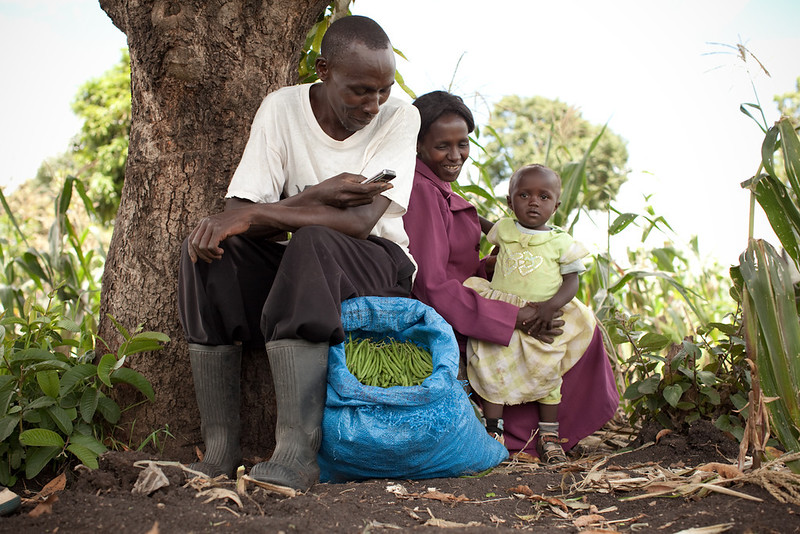KickStart International: Lifting Farmers out of Poverty with Irrigation
 In sub-Saharan Africa, 80% of those living in extreme poverty are farmers, largely because they depend on rainfall for irrigation, allowing only one or two harvests annually. Unpredictable weather and frequent droughts devastate crops, stripping small-scale farmers of their income. Since all farmers plant and harvest simultaneously, the market floods when crops mature, plummeting prices and profits. Addressing these challenges, KickStart International equips farmers with irrigation pumps that draw water from six meters underground, enabling year-round farming. This technology stabilizes income by mitigating reliance on seasonal rainfall and helps farmers avoid market saturation’s economic pitfalls.
In sub-Saharan Africa, 80% of those living in extreme poverty are farmers, largely because they depend on rainfall for irrigation, allowing only one or two harvests annually. Unpredictable weather and frequent droughts devastate crops, stripping small-scale farmers of their income. Since all farmers plant and harvest simultaneously, the market floods when crops mature, plummeting prices and profits. Addressing these challenges, KickStart International equips farmers with irrigation pumps that draw water from six meters underground, enabling year-round farming. This technology stabilizes income by mitigating reliance on seasonal rainfall and helps farmers avoid market saturation’s economic pitfalls.
The Impact of Irrigation on Farming
Irrigation pumps, though effective, are expensive and underutilized in sub-Saharan Africa, with only 4% of farmers employing this technology. Most farmers depend on seasonal rainfall, which limits crop production to certain times of the year. Irrigation enables year-round farming, boosting crop output and profits, stabilizing market conditions and eliminating the “hungry season” when food scarcity peaks due to reduced rainfall. KickStart International highlights the transformative impact of irrigation: families who install these systems see an average farm income increase of 370% within the first 18 months and 1,230% after five years, marking significant economic advancements for those adopting the technology.
KickStart’s Sustainable Business Model
KickStart International collaborates with farmers and local businesses to create sustainable supply chains for irrigation pumps rather than distributing them for free. As a nonprofit, KickStart works with manufacturers, importers and distributors who profit by selling these pumps at affordable prices. This model fosters sustainable solutions and builds a self-sustaining market ecosystem. By establishing a profitable, independent supply chain that includes importers, distributors, retail shops and service providers, it creates a robust infrastructure. This system enables farmers to learn about irrigation, purchase pumps and obtain spare parts and services, ensuring longevity beyond KickStart’s direct involvement, explains KickStart. The organization respects existing markets, opting not to sell in areas where a local supply chain already exists.
Educating Farmers About Irrigation
Many small-scale farmers do not realize that irrigation is a viable and affordable option. KickStart International actively promotes irrigation practices through live demonstrations, advertisements on television and radio and public educational events. The organization collaborates with many partners, including UNICEF, the World Food Programme and other prominent nonprofits, to increase awareness about the benefits of irrigation.
KickStart’s Innovations and Recognition
KickStart’s Innovations Hub in Nairobi, Kenya, continues to develop products that provide unique value additions for farmers and significantly improve the affordability, efficiency and impacts of existing products. The organization is also launching a program that allows farmers to rent irrigation pumps instead of buying them. Under this plan, Irrigation Agents—individual sellers—can potentially earn income by renting out the equipment. Meanwhile, farmers can increase their profitability sufficiently to buy a pump for the next growing season.
KickStart International’s success is noteworthy. Martin Fisher, the co-founder, has earned recognition as a Time European Hero. Fisher also appeared on the Forbes Impact 30 List, among other honors. Since its inception in 1991, the nonprofit has lifted 1.5 million people out of poverty, enabled the production of enough irrigation-grown crops to feed 15 million people and generated $210 million in profits for small-scale farmers.
– Maren Fossum-Wernick
Maren is based in St. Paul, MN, USA and focuses on Global Health and Politics for The Borgen Project.
Photo: Flickr
